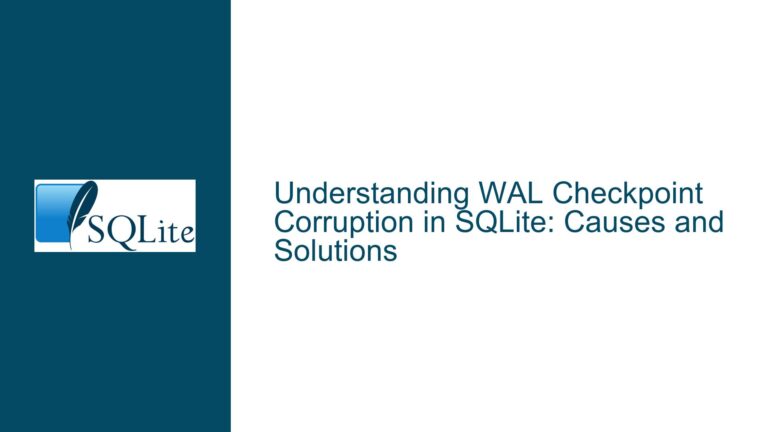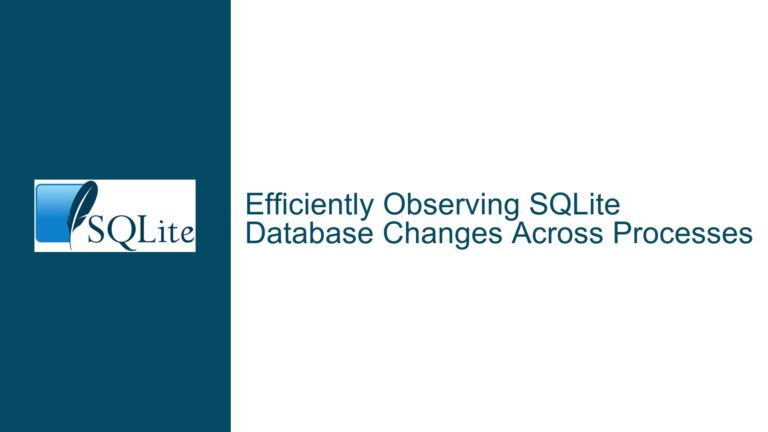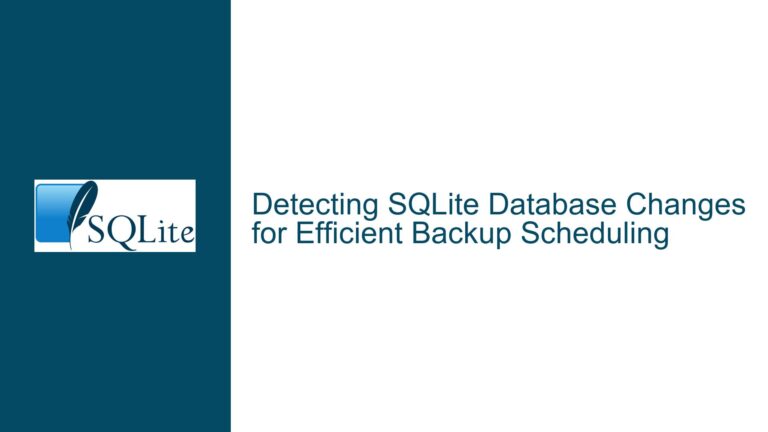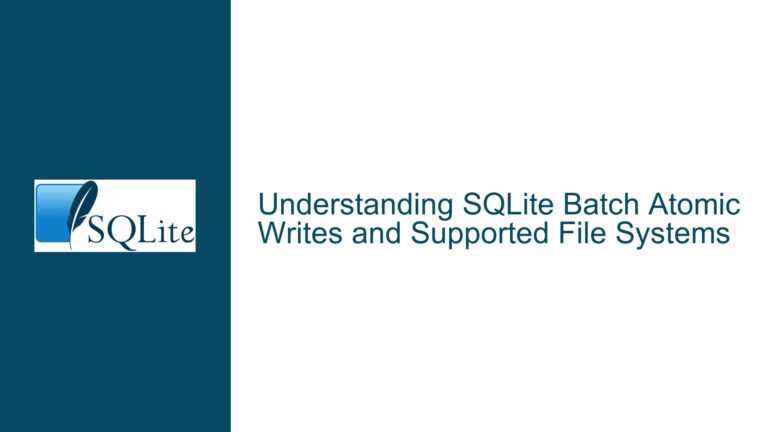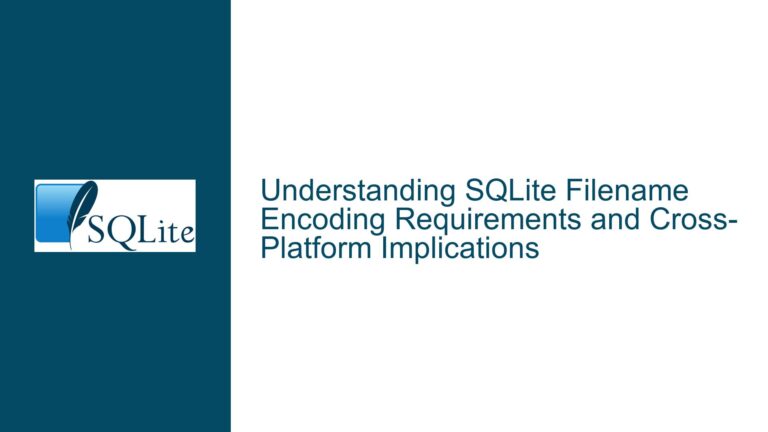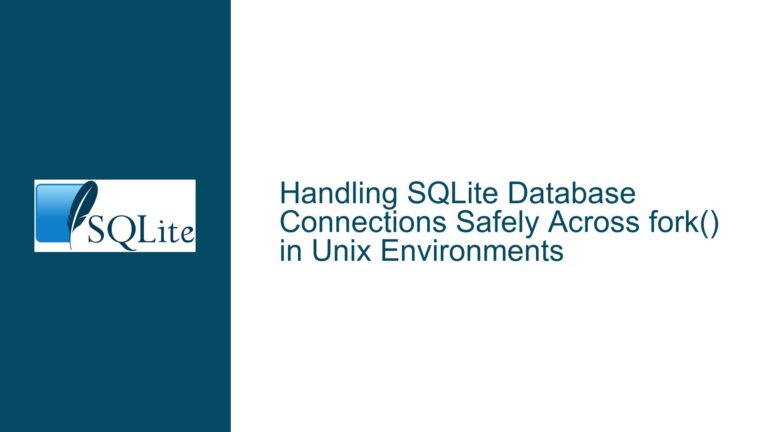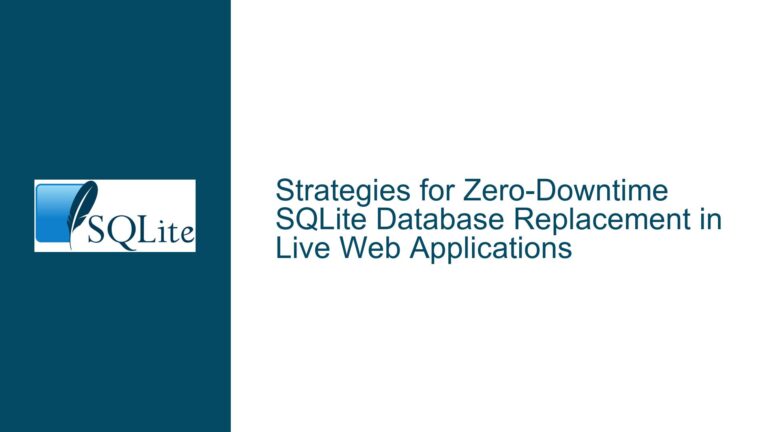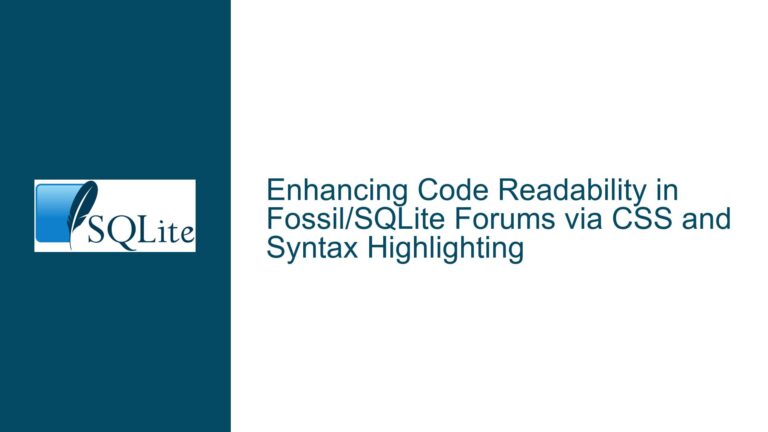WAL Checkpoint Corruption in SQLite: Causes and Solutions
Issue Overview: Corruption During WAL Checkpoint Operations In SQLite, the Write-Ahead Logging (WAL) mode is a popular choice for improving concurrency and performance. However, it introduces specific scenarios where database corruption can occur, particularly during checkpoint operations. A checkpoint operation is the process of transferring changes from the WAL file to the main database file,…
